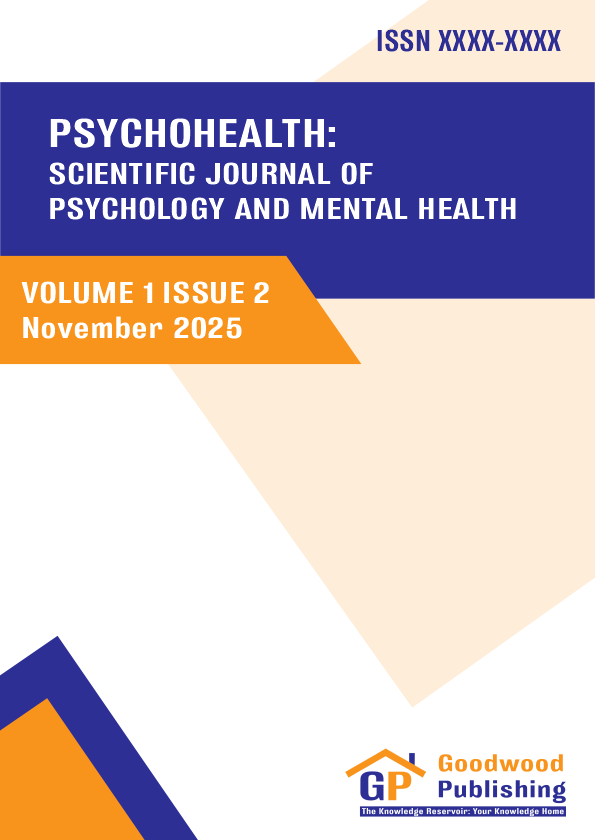Article Details
Vol. 1 No. 2 (2025): November
Pedagogical conditions for ensuring cognitive-emotional integration in medical education
Abstract
Purpose: This study aims to identify and substantiate the pedagogical conditions that ensure cognitive-emotional integration in medical education, emphasizing the balance between intellectual development and emotional intelligence for the formation of empathetic, competent, and ethically responsible healthcare professionals.
Methodology: A mixed-method design combining theoretical and empirical approaches was employed. The research involved 120 medical students divided equally into experimental and control groups. Data were collected using instruments such as the Mayer–Salovey–Caruso Emotional Intelligence Test (MSCEIT), Jefferson Scale of Physician Empathy (JSPE), and Reflection Questionnaire. Experimental interventions included reflection-based learning, empathy simulations, and emotionally engaging teaching strategies.
Results: Findings revealed significant improvements (p < 0.05) in the experimental group in emotional intelligence (+24%), empathy (+22%), and reflective ability (+27%) compared to the control group. Qualitative data indicated enhanced motivation, emotional regulation, and professional identity formation, confirming that emotional engagement deepens cognitive understanding and ethical awareness.
Conclusion: Cognitive-emotional integration effectively harmonizes rational and affective learning, strengthening both professional competence and emotional resilience. The developed pedagogical model fosters holistic development, aligning with humanistic and experiential learning theories.
Limitations: The study was limited to one academic semester and a single institution, suggesting the need for longitudinal and cross-cultural validation.
Contribution: This research contributes a validated pedagogical model that unites cognition and emotion, offering actionable strategies for medical educators to cultivate emotionally intelligent, reflective, and compassionate physicians.
Keywords
How to Cite
Download Citation
References
- Bar-On, R. (1997). The Emotional Intelligence Inventory (EQ-I): Technical Manual. Toronto, Canada: Multi-Health Systems, 211.
- Boyatzis, R. E. (2008). Competencies in the 21st Century. Journal of Management Development, 27(1), 5-12. doi:https://doi.org/10.1108/02621710810840730
- Cant, R. P., & Cooper, S. J. (2010). Simulation?based Learning in Nurse Education: Systematic Review. Journal of Advanced Nursing, 66(1), 3-15. doi:https://doi.org/10.1111/j.1365-2648.2009.05240.x
- Damasio, A. (1994). Descartes’ Error: Emotion, Reason and the Human Brain, New York. G. P. Putnam's Sons.
- Dewey, J. (1986). Experience and education. Paper Presented at the The Educational Forum.
- Dzhumaevna, N. N. (2025). Avicenna’s Legacy and the Modern Model of Public Health: Transforming the Roles of Education and Social Justice. Journal of Multidisciplinary Academic and Practice Studies, 3(4), 1013-1028. doi:https://doi.org/10.35912/jomaps.v3i4.3603
- Goleman, D. (2005). Emotional Intelligence: Why it Can Matter More Than IQ: Bantam.
- Hojat, M. (2016). Empathy in Health Professions Education and Patient Care. doi:https://doi.org/10.1007/978-3-319-27625-0
- Hsu, W.-C., Fuh, L.-J., & Liao, S.-C. (2024). Tickling the Heart: Integrating Social Emotional Learning into Medical Education to Cultivate Empathetic, Resilient, and Holistically Developed Physicians. Frontiers in Medicine, 11, 1368858. doi:https://doi.org/10.3389/fmed.2024.1368858
- Immordino?Yang, M. H., & Damasio, A. (2007). We feel, Therefore We Learn: The Relevance of Affective and Social Neuroscience to Education. Mind, Brain, and Education, 1(1), 3-10. doi:https://doi.org/10.1111/j.1751-228X.2007.00004.x
- Inoyatovna, A. K. (2025). Strategies for Fostering Functional Literacy in Medical Students During Biochemistry Instruction. Studies in Medicine and Public Health, 1(1), 31-41. doi:https://doi.org/10.35912/simph.v1i1.3318
- Kember, D., Leung, D. Y., Jones, A., Loke, A. Y., McKay, J., Sinclair, K., . . . Wong, M. (2000). Development of a Questionnaire to Measure the Level of Reflective Thinking. Assessment & Evaluation in Higher Education, 25(4), 381-395. doi:https://doi.org/10.1080/713611442
- Khikmatovich, K. I. (2025). The Tendency of Factors Influencing the State of Psychological Readiness of an Individual for Professional Activity. Journal of Multidisciplinary Academic and Practice Studies, 3(2), 143-154. doi:https://doi.org/10.35912/jomaps.v3i2.3595
- Kolb, D. A. (2014). Experiential learning: Experience as the Source of Learning and Development: FT Press.
- Kozlowski, D., Hutchinson, M., Hurley, J., Rowley, J., & Sutherland, J. (2017). The Role of Emotion in Clinical Decision Making: An Integrative Literature Review. BMC Medical Education, 17(1), 255. doi:https://doi.org/10.1186/s12909-017-1089-7
- LeDoux, J. E. (2013). Emotion Circuits in the brain. Fear and Anxiety, 259-288.
- Marcos, R., Brénugat, L., Bague, K., & Laurent, E. (2024). Perspective chapter: Emotional Intelligence from a Neuropsychological Perspective.
- Maslow, A. (1970). Motivation and Personality.—New York: Harpaer & Row, 1954. ??????? ??????. ????????? ? ????????. ???. ?? ???????????.
- Mayer, J., & Salovey, P. (1990). Emotional Intelligence Imagination Cognition and Personality. American Journal of Educational Research.
- Pelletier, C., & Kneebone, R. (2016). Learning Safely from Error? Reconsidering the Ethics of Simulation-Based Medical Education Through Ethnography. Ethnography and Education, 11(3), 267-282. doi:https://doi.org/10.1080/17457823.2015.1087865
- Pessoa, L. (2008). On the Relationship between Emotion and Cognition. Nature Reviews Neuroscience, 9(2), 148-158. doi:https://doi.org/10.1038/nrn2317
- Peters, R. (1970). Freedom to learn: A view of what education might become: Carl R. Rogers columbus, ohio: Charles E. Merrill, 1969/Pp. 358/Paperback, 3.95;Cloth, 7.50: Springer.
- Shapiro, J. (2011). Perspective: Does Medical Education Promote Professional Alexithymia? A Call For Attending to the Emotions of Patients and Self in Medical Training. Academic Medicine, 86(3), 326-332. doi:https://doi.org//10.1097/ACM.0b013e3182088833
- Shi, M., & Du, T. (2020). Associations of Emotional Intelligence and Gratitude with Empathy in Medical Students. BMC Medical Education, 20(1), 116. doi:https://doi.org/10.1186/s12909-020-02041-4
- Stepien, K. A., & Baernstein, A. (2006). Educating for Empathy: A Review. Journal of General Internal Medicine, 21(5), 524-530. doi:https://doi.org/10.1111/j.1525-1497.2006.00443.x
- Versel, J. L., Plezia, A., Jennings, L., Sontag-Milobsky, I., Adams, W., & Shahid, R. (2023). Emotional Intelligence and Resilience “PROGRAM” Improves Wellbeing and Stress Management Skills in Preclinical Medical Students. Advances in Medical Education and Practice, 1309-1316. doi:https://doi.org/10.2147/AMEP.S437053
- Vygotsky, L. S. (1978). Mind in Society: The Development of Higher Psychological Processes (Vol. 86): Harvard University Press.
- Yuldashevich, M. M. (2025). Effective Technologies for Psychocorrectional Work with Juvenile Offenders. Journal of Multidisciplinary Academic and Practice Studies, 3(4), 1001-1012. doi:https://doi.org/10.35912/jomaps.v3i4.3602
License

This work is licensed under a Creative Commons Attribution-ShareAlike 4.0 International License.

